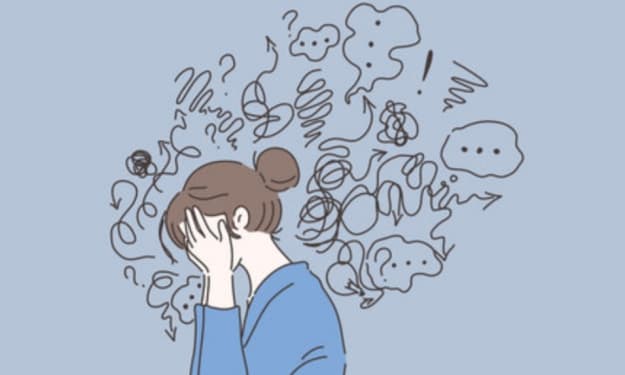Breaking the Silence: Navigating the Depths of Depression
Understanding Depression: Symptoms, Treatments, and Support

Understanding Depression: Symptoms, Treatments, and Support
Depression is a serious mental health condition that affects millions of people worldwide. It can impact all aspects of life, from emotions and thoughts to physical health and relationships. Understanding the symptoms, available treatments, and avenues of support is crucial for both those experiencing depression and their loved ones.
Symptoms of Depression
Recognizing the signs of depression is essential for early intervention and treatment. While the severity and duration of symptoms can vary, common signs include:
1. **Persistent Sadness**: Feeling persistently down, empty, or hopeless, often without an apparent reason.
2. **Loss of Interest**: Losing interest or pleasure in activities once enjoyed, including hobbies, social interactions, or work.
3. **Changes in Appetite or Weight**: Significant changes in appetite resulting in weight loss or gain, often accompanied by changes in eating patterns.
4. **Sleep Disturbances**: Difficulty sleeping (insomnia) or sleeping excessively (hypersomnia), along with disturbances in sleep patterns.
5. **Fatigue or Loss of Energy**: Feeling tired, sluggish, or lacking energy even after adequate rest.
6. **Feelings of Worthlessness or Guilt**: Persistent feelings of worthlessness, self-blame, or excessive guilt over minor issues.
7. **Difficulty Concentrating**: Trouble focusing, making decisions, or remembering details.
8. **Suicidal Thoughts or Behavior**: Thoughts of death or suicide, or engaging in self-harming behaviors. If you or someone you know is experiencing suicidal thoughts, seek immediate help from a mental health professional or call emergency services.
#### Treatments for Depression
Effective treatment for depression typically involves a combination of psychotherapy (talk therapy), medication, and lifestyle changes. Here are some common approaches:
1. **Psychotherapy**:
- **Cognitive Behavioral Therapy (CBT)**: Focuses on identifying and changing negative thought patterns and behaviors.
- **Interpersonal Therapy (IPT)**: Addresses relationship issues and social functioning to improve interpersonal skills and support networks.
- **Mindfulness-Based Therapies**: Techniques such as mindfulness-based cognitive therapy (MBCT) help individuals manage and reduce depressive symptoms.
2. **Medications**:
- **Antidepressants**: Selective serotonin reuptake inhibitors (SSRIs), serotonin-norepinephrine reuptake inhibitors (SNRIs), and other antidepressants help regulate brain chemicals involved in mood regulation.
3. **Lifestyle Changes**:
- **Regular Exercise**: Physical activity releases endorphins, improves sleep, and reduces symptoms of depression.
- **Healthy Diet**: A balanced diet rich in fruits, vegetables, whole grains, and lean proteins supports overall well-being.
- **Sleep Hygiene**: Establishing a regular sleep schedule and practicing relaxation techniques before bedtime can improve sleep quality.
4. **Support Groups and Peer Support**:
- Joining support groups or participating in peer support programs can provide emotional support, reduce isolation, and offer coping strategies from others who have experienced similar challenges.
5. **Alternative Therapies**:
- **Acupuncture**: Some individuals find acupuncture helpful in reducing depressive symptoms.
- **Herbal Supplements**: St. John's Wort and other herbal supplements may be considered, but always consult with a healthcare provider before starting any new treatment.
Seeking Support for Depression
Support from family, friends, and mental health professionals plays a crucial role in managing depression:
1. **Talk to Loved Ones**: Openly communicate with trusted friends and family members about your feelings and struggles. Having a strong support system can provide emotional validation and practical assistance.
2. **Therapy and Counseling**: Consult a licensed therapist or counselor for professional guidance and support. They can help develop coping strategies, provide a safe space for expression, and monitor progress.
3. **Hotlines and Crisis Intervention**: If in crisis or experiencing severe symptoms, contact a crisis hotline or mental health professional immediately. In the United States, the National Suicide Prevention Lifeline is available 24/7 at 1-800-273-TALK (8255).
4. **Online Resources**: Explore reputable online resources and forums dedicated to depression awareness and support. Websites like the National Alliance on Mental Illness (NAMI) offer educational materials, support groups, and advocacy resources.
5. **Medication Management**: If prescribed antidepressants, follow your healthcare provider's instructions carefully, and communicate any concerns or side effects promptly.
Depression is a complex and challenging condition, but with proper treatment and support, recovery is possible. It's essential to recognize symptoms early, seek professional help, and explore various treatment options tailored to individual needs. Remember, you are not alone in this journey, and reaching out for support is a courageous step towards healing and regaining control of your life. By fostering understanding, compassion, and resilience, we can create a supportive environment where those affected by depression can thrive and find hope for a brighter future.
About the Creator
Enjoyed the story? Support the Creator.
Subscribe for free to receive all their stories in your feed. You could also pledge your support or give them a one-off tip, letting them know you appreciate their work.





Comments
There are no comments for this story
Be the first to respond and start the conversation.